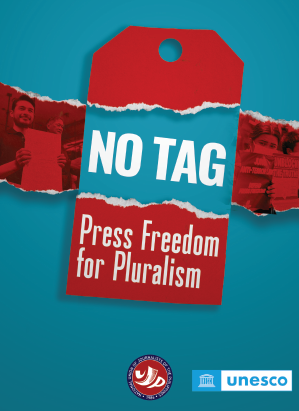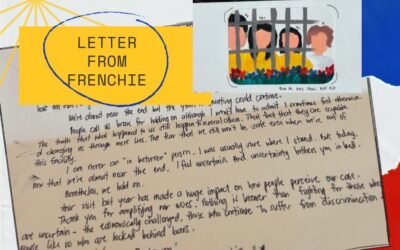Defenders of red-tagging have often claimed that the practice does not happen, or that if it happens, it is not done by the government.
Even President Ferdinand Marcos Jr., in justifying the existence of the National Task Force to End Local Communist Armed Conflict, said that red-tagging is not done by government, but by “kung sino-sinong iba” as if the narrative that activist groups, rights defenders and journalists are “communist-terrorists,” “urban operatives,” and other labels does not come from government itself.
Although it is true that the perpetrators of some cases of red-tagging — for example, through posters and streamers and on social media — cannot be traced, there are enough examples done by government officials or by their associates.
The National Union of Journalists of the Philippines conducted a study that found that as high as 60% of red-tagging incidents against journalists have been state-sponsored. That and other findings are in a study launched in Baguio City on Saturday.
The Supreme Court, in Deduro v. Maj. Gen. Vinoya, has acknowledged that “red-tagging, vilification, labeling, and guilt by association threaten a person’s right to life, liberty, or security.”
In that same case, it noted that military officers labeled former Bayan Muna Rep. Siegfred Deduro as part of the Communist Party of the Philippines-New People’s Army at a meeting of the Iloilo Provincial Peace and Order Council in June 2020, an accusation that was reported by state-run Philippine News Agency and by Bombo Radyo Iloilo.
Media workers as well as campus journalists outside Metro Manila have been summoned by military officials for being part of supposed “sectoral front organizations” or to convince them to “come back to the folds of the law”, as if journalism — especially journalism for the people — is illegal.
The social media pages of Philippine National Police units have long been documented to have issued posts accusing activists, and even the murdered Sen. Benigno Aquino Jr., of being rebels or terrorists.
Lorraine Badoy-Partosa and Jeffrey Celiz, among the most rabid of red-taggers, are former affiliates of the NTF-ELCAC and have resorted to McCarthyist hysteria via a show aired by a network that has had a partnership agreement with the Philippine Army since 2022.
In the three years since the NUJP National Congress resolved to intensify our campaign against red-tagging, government agencies have claimed that red-tagging is not a government policy, or is undefined in law, or is harmless because it only involves words.
But this study proves otherwise.
Since 2016, the NUJP has documented at least 159 incidents of red-tagging against individual journalists, newsrooms, and media organizations. More than half of these cases are state-sponsored, including the now debunked matrix that red-tagged dozens of individuals and groups during the Duterte administration. State agents and other actors – using social media and physical methods such as posters, drop-by letters and official documents – have targeted members of both the alternative and mainstream media across the Philippines.
This study, based on documented cases as well as discussions with actual targets of red-tagging, is our response to those claims and a closer look at how this policy — done by government officials and continuing to this day — harms media workers, restricts truth-telling, adds to the chilling effect on the media community and affects the public’s access to relevant, truthful and timely information.
As much as documentation and acknowledgement of red-tagging incident, this report is meant as input to policy for wider civic space in the Philippines, for more robust support systems for media workers targeted by red-tagging, and an urgent demand to end red-tagging, including the abolition of the NTF-ELCAC, and the continued securitization of government response to social issues and to the call for social justice.\
Download the study here: https://nujp.org/no-tag/



